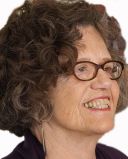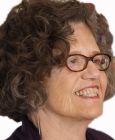Adoption
An International Adoptee's Need to Connect to Her Roots
A guest blog by Reshma McClintock
Posted March 4, 2015
I’m happy to post this guest blog and I hope that readers will help fund a documentary film on Reshma’s search.
My life began in abandonment in a Calcutta slum. My tiny body weighed one pound and I was housed in a local orphanage. There wasn’t a soul who thought I’d survive, but I did. When I was three months old, the two people I would come to know as my parents were preparing for the arrival of a different Indian orphan named Ruby. When Ruby did not survive, I was sent in her place. Despite this less than ideal introduction to the world, my adoption began a life full of love, joy and acceptance—a life of deep connection to a family with whom I share no biological ties. I’m fortunate that I feel deeply fulfilled in my relationships within my family.
As a child, I never felt a need to connect to my roots because I had such a solid family life. Growing up, I avoided any mention of my adoption or India for fear that it would remind everyone I came from another world and that I was different. My need to understand my Indian culture only surfaced recently in the early months of my pregnancy. I found the first real connection I had to my biological mother: thirty years apart, we both carried a daughter. This new found interest in my roots has initiated a mission for me—one of discovery, education and of seeking to find something I didn’t know I was missing.
I have taken small steps toward deepening my connection to India. One step was in naming my daughter Ruby as a way of honoring the little girl whose place I took. Becoming Ruby’s mom has given new life to small wonderings about my Indian heritage and now I have an ever growing need to quench my thirst to know Calcutta. I feel that I cannot fully know myself until I tap into my heritage. Even though I don’t expect to be able to locate my birth parents, my journey will help me educate my daughter on these portions of a heritage we share
The link below is provided so you may view a trailer for a documentary of which I’ll be the subject. I ask that you view the trailer and become a part of bringing this dream to fruition. Calcutta is My Mother will document my first return to Calcutta since my departure 35 years ago. I’m only able to make this journey and pursue fulfilling this part of me because of the full support of my husband and family.
My parents have always encouraged me to embrace my roots and they are possibly the most excited of all to see me finally seize the opportunity. They were ready before I was. I have a confidence in the solidity of my relationships with my family and none of us have any concerns about this impacting how we feel about each other. I’ve communicated to each of them I am in pursuit of a cultural connection and not necessarily a family connection. Specifically, my parent’s and my brother’s sensitivity to my need to pursue this path is what really gives me the freedom to go all in. It would be far more difficult to embark on this without their encouragement. While no one from my family will accompany me to Calcutta, I will be in contact with them throughout my time there; we all agree it is of the utmost importance for me to focus on connecting to what is there because I already know what I have here.
In the documentary, I will immerse myself into Indian culture so as to see how my life might have played out had I survived and remained in the city of my birth. I cannot rest until I make this endeavor. I cannot fully find peace without a journey to Calcutta; the mother I’ve never known. In taking this leap, I hope to encourage other adoptees to do the same.
See a trailer for the documentary at http://goo.gl/sE66Aw
Reshma McClintock lives in Denver, Colorado with her husband and daughter. She currently writes about her life and feelings surrounding being an adoptee on her website Writtenbyresh.com and is working on a book about her experience with adoption.


